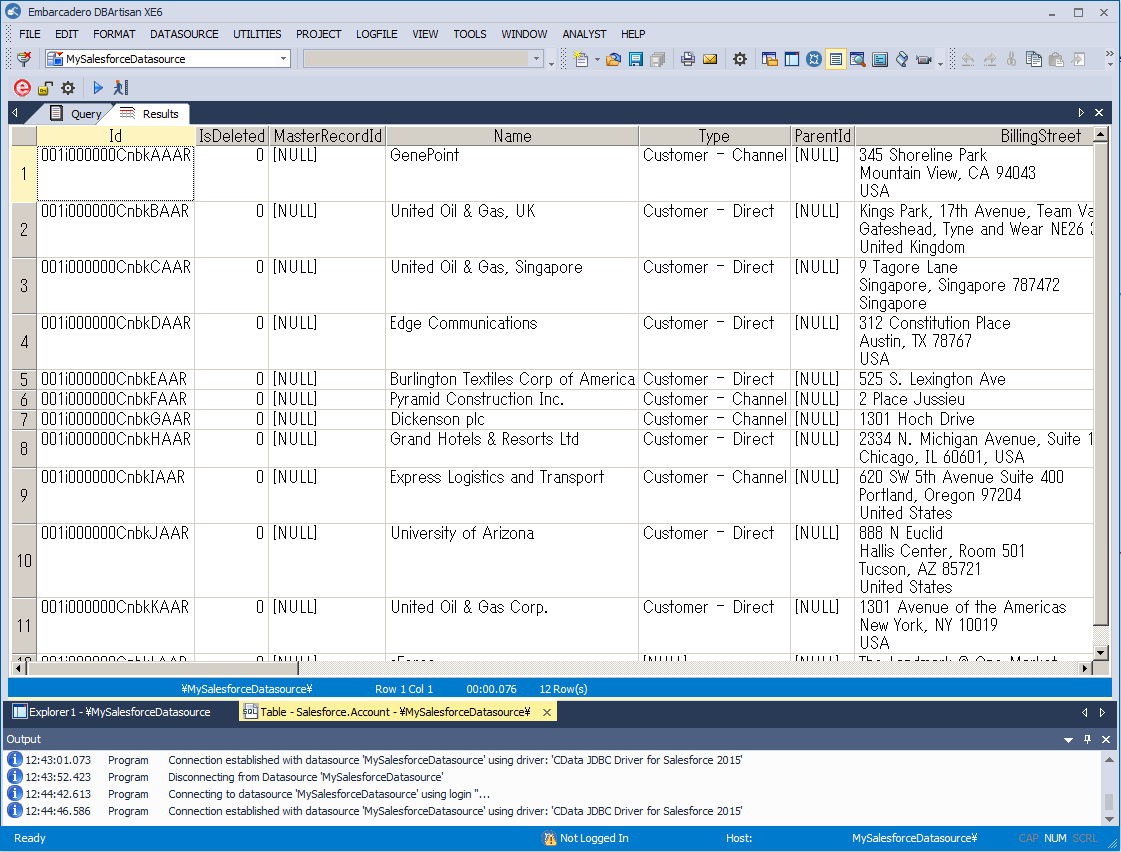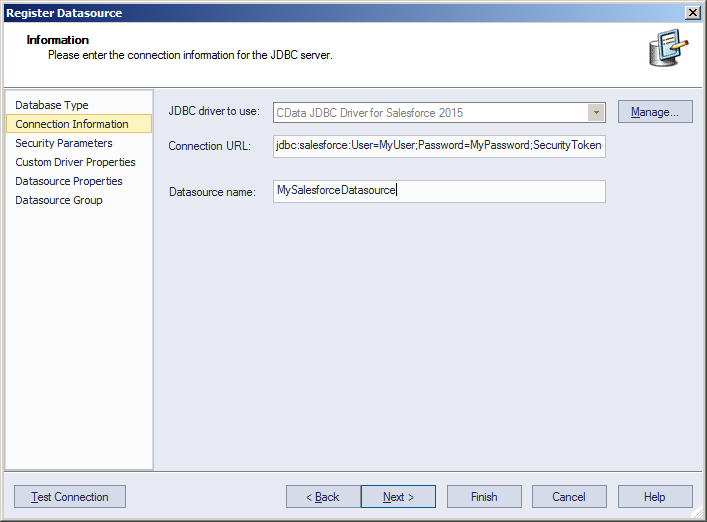Discover how a bimodal integration strategy can address the major data management challenges facing your organization today.
Get the Report →Manage Calendly Data in DBArtisan as a JDBC Source
Use wizards in DBArtisan to create a JDBC data source for Calendly.
The CData JDBC Driver for Calendly seamlessly integrates Calendly data into database management tools like DBArtisan by enabling you to access Calendly data as a database. This article shows how to create a JDBC source for Calendly in DBArtisan. You can then edit data visually and execute standard SQL.
Integrate Calendly Data into DBArtisan Projects
Follow the steps below to register Calendly data as a database instance in your project:
- In DBArtisan, click Data Source -> Register Datasource.
- Select Generic JDBC.
- Click Manage.
- In the resulting dialog, click New. Enter a name for the driver and click Add. In the resulting dialog, navigate to the driver JAR. The driver JAR is located in the lib subfolder of the installation directory.
![The JDBC driver definition in the Register Datasource wizard. (Salesforce is shown.)]()
-
In the Connection URL box, enter credentials and other required connection properties in the JDBC URL.
Start by setting the Profile connection property to the location of the Calendly Profile on disk (e.g. C:\profiles\CalendlyProfile.apip). Next, set the ProfileSettings connection property to the connection string for Calendly (see below).
Calendly API Profile Settings
To authenticate to Calendly, you will need to provide an API Key. The Calendly API Key, can be found in your Calendly account, under 'Integrations' > 'API & Webhooks' > 'Generate New Token'. Set the APIKey in the ProfileSettings connection property.
Built-in Connection String Designer
For assistance in constructing the JDBC URL, use the connection string designer built into the Calendly JDBC Driver. Either double-click the JAR file or execute the jar file from the command-line.
java -jar cdata.jdbc.api.jarFill in the connection properties and copy the connection string to the clipboard.
![Required JDBC connection properties in the Register Datasource wizard. (Salesforce is shown.)]()
Below is a typical connection string:
jdbc:api:Profile=C:\profiles\Calendly.apip;ProfileSettings='APIKey=your_api_token'; - Finish the wizard to connect to Calendly data. Calendly entities are displayed in the Datasource Explorer.
You can now work with Calendly data as you work with any other database. See the driver help documentation for more information on the queries supported by the Calendly API.








